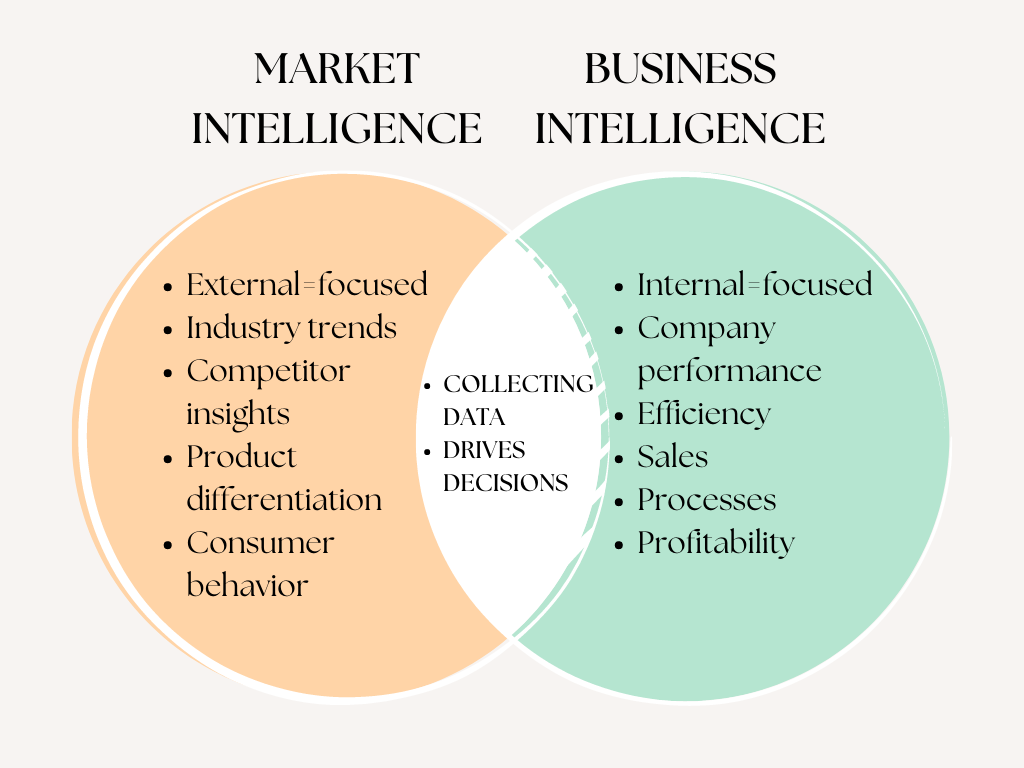In a context in which innovation makes a difference, handling current information and staying restless in the search for novelties is a central value. For this reason, in this opportunity, through the concept of Marketing Intelligence (or market intelligence), we will delve into a modality of business development that prioritizes data management as a strategy to make our business more competitive.
When it comes to finding a method to make a company known in its different market segments, the key is to transform data into useful knowledge. What does useful mean? We refer to all that concrete, measurable, and updated information that allows us to make decisions, generate changes, adjust sales variables, and other concrete and agile strategic decisions.
Is everything Market Intelligence?
Market Intelligence or market intelligence is all the information we collect, which is related to the markets in which an entity is positioned. In other words, these relevant data are grouped and analyzed in detail so that the corresponding entity can make the appropriate decisions later so that the business strategies that have been established come to fruition.
But while intelligence is based on information, not all information is useful for market intelligence. This means that in order to discover where our opportunities are within one market or another and adequately develop our positioning work, it is key to define what type of information we need.
The information that we collect using Market Intelligence must bring specific data about the environment that surrounds the company (this will be complemented with internal information, which Business Intelligence is already in charge of ).
In short, it is about focusing and deepening the information about our consumers’ habits, competition, market characteristics, consumption patterns, and other variables that, hand in hand with a correct Market Intelligence strategy, we will be able to channel intelligence. Intelligence at the service of a much more complete analysis will give us a much more sensitive and detailed picture of our sector of belonging.
Why promote Market Intelligence?
According to data released by Mastercard, more than 80% of Latin Americans bought online in 2022. This abysmal change in consumer habits, which led people to the digital terrain, makes companies able to know, measure and predict behaviors thanks to a trace of parameters that the available data made available to us.
Today, intelligence is mainly used to obtain valuable information about the markets, but to get this data we need to use different tools that are very useful in different aspects.
We are talking, for example, about the traditional ways of extracting information (such as conducting interviews, surveys or even carrying out an exhaustive control of all points of sale) but above all about adding digitization to this marketing technique.
Some examples are the Google Consumer Survey tool or even making use of specialized websites that offer this type of service.
Differences with Business Intelligence:
While Market Intelligence is mainly focused on obtaining fundamental data and information in relation to the environment that surrounds the company, always externally, Business Intelligence, for its part, is in charge of collecting information from the internally part. This second option is much more analytical and focuses on studying in-depth everything that makes up the company from within.
Market Intelligence is a more holistic process since it takes into account the external part of the entity. In this way, the set of data collected by both methods makes the company a whole and from there develop the most appropriate strategies for the business to proliferate, making the most appropriate decisions for it.
2023 is a year of uncertainty, but the long-awaited economic recovery and stabilization can only be energized by using the information as a tool to enhance any other business strategy. To reinvent ourselves, we need more than ever to detect opportunities, industry niches, and customer preferences.


